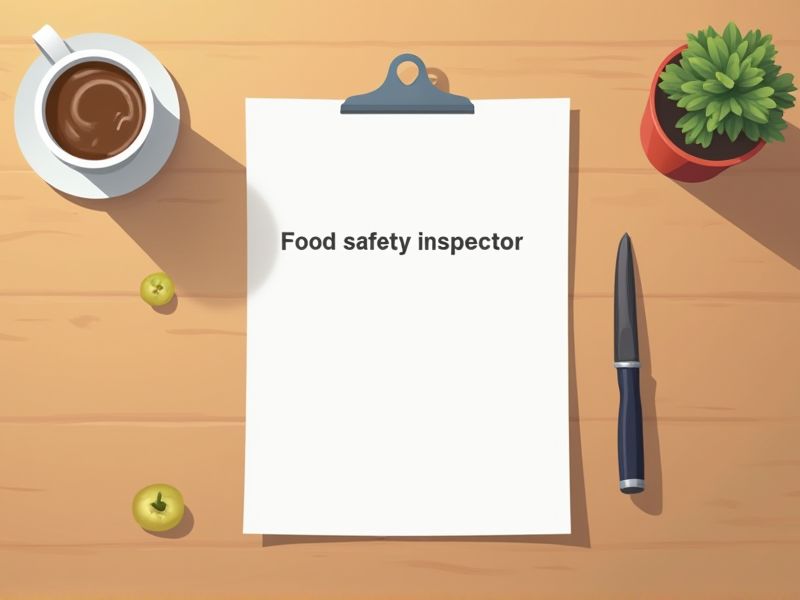
To ensure public health and compliance with regulations, food safety inspectors must possess in-depth knowledge of safety standards and protocols. Certifications provide the necessary skills to identify potential hazards and implement corrective actions effectively. Without verified credentials, the risk of contamination increases, compromising consumer safety and trust. Consider acquiring these essential certifications to establish expertise as a food safety inspector.
ServSafe Food Handler Certification
The ServSafe Food Handler Certification equips a food safety inspector with fundamental knowledge of proper food handling and sanitation practices, reducing the risk of foodborne illnesses. It provides inspectors with the credibility needed to enforce hygiene standards effectively, as they have a proven understanding of industry protocols. Inspectors can communicate and train staff better on safe practices when they hold a certification that demonstrates their expertise. Certification ensures inspectors stay updated on evolving food safety regulations, maintaining public health standards.
ServSafe Manager Certification
Achieving ServSafe Manager Certification validates a food safety inspector's knowledge of essential food safety protocols, thereby enhancing their credibility. This certification ensures inspectors are well-versed in critical areas like preventing foodborne illnesses and handling allergens, directly impacting public health. States often require this certification to comply with local regulations, linking job eligibility with ServSafe credentials. Companies trust certified inspectors to implement best practices, reducing risks of non-compliance and potential legal consequences.
HACCP Certification
HACCP Certification equips food safety inspectors with a systematic approach to identify, evaluate, and control food safety hazards. The certification establishes standardized protocols, ensuring consistent inspection and evaluation practices across different food production sites. It enhances the credibility and trust in the food supply chain, reassuring consumers about the safety of the food products. Regulatory compliance often requires adherence to HACCP principles, making certification essential for inspectors in various jurisdictions.
ISO 22000 Food Safety Management Certification
ISO 22000 Food Safety Management Certification establishes a global standard that ensures a comprehensive approach to food safety, which food safety inspectors need to reference for consistent evaluations. By being certified, inspectors gain credibility and assurance that they understand the intricacies of international food safety protocols. The certification provides inspectors with the requisite knowledge to identify potential hazards within the food supply chain, thereby reducing the risk of contamination. This certification aids in building a common language of standards between inspectors and organizations, facilitating clearer and more effective communication about safety requirements.
GFSI Benchmark Certification (e.g., SQF or BRCGS)
Holding a GFSI Benchmark Certification ensures a consistent understanding of food safety standards, which helps inspectors evaluate practices effectively. This certification signals a high level of industry-relevant knowledge, allowing inspectors to identify potential hazards and compliance issues accurately. It enhances credibility with food businesses, as inspectors are perceived as well-versed in globally recognized standards. It also streamlines the auditing process, as both inspectors and businesses operate within the same framework, reducing gaps in communication and interpretation.
Certified Food Safety Professional (CFSP)
The presence of a Certified Food Safety Professional (CFSP) ensures adherence to stringent safety regulations, which reduces the risks of foodborne illnesses. Their expertise helps identify potential hazards in food production and handling processes, enhancing overall quality control. CFSPs are trained to implement and monitor safety standards efficiently, thus maintaining compliance with governmental and industry standards. This certification elevates the inspector's credibility, ensuring public trust and confidence in the inspected food establishments.
USDA Food Safety and Inspection Service (FSIS) Training Certification
Food safety inspectors require USDA FSIS Training Certification to ensure uniformity in regulatory standards across all inspection sites. This certification equips inspectors with the necessary skills to identify potential health hazards in food production. Without proper certification, inspectors might overlook critical safety violations, leading to public health risks. Reliable food safety inspections build consumer trust and reduce the likelihood of foodborne illness outbreaks.
Food Safety Audit Certification
Food safety audit certification ensures inspectors possess the necessary skills and knowledge to identify potential hazards in food production processes. This certification supports consistent and standardized evaluations, leading to improved public health outcomes. By undergoing specialized training, inspectors can effectively enforce regulations, minimizing risks of foodborne illnesses. Certification increases consumer confidence in food safety practices, fostering trust in food supply chains.
National Environmental Health Association (NEHA) Certification
NEHA Certification signifies a standardized recognition of expertise in environmental health, which elevates the credibility of a Food Safety Inspector. Achieving NEHA certification ensures the inspector possesses up-to-date knowledge on food safety regulations and best practices, essential for maintaining public health. This certification aids in the identification and prevention of potential food safety hazards through a validated understanding of contemporary safety protocols. The recognition also establishes professional trust, increasing compliance from food establishments and protecting consumers from foodborne illnesses.
OSHA 30-Hour General Industry Certification
Food safety inspectors often encounter hazards such as chemical exposures or slips and falls, making OSHA 30-Hour General Industry Certification critical for recognizing and mitigating these risks. This certification equips inspectors with comprehensive knowledge on industry-standard safety protocols, ensuring safer work environments. Regulations often require organizations to have certified personnel to comply with legal standards, minimizing liabilities. Enhanced safety practices driven by this certification can lead to reduced workplace accidents, promoting public confidence in food safety inspections.
Summary
When you earn certifications as a Food Safety Inspector, your credibility and trustworthiness are likely to increase. This certification can lead to greater job opportunities and potentially higher positions within your organization. With advanced knowledge and skills, you can contribute to improving health standards and minimizing risks in food processing. Your expertise may also influence industry regulations and practices, enhancing public health outcomes.
